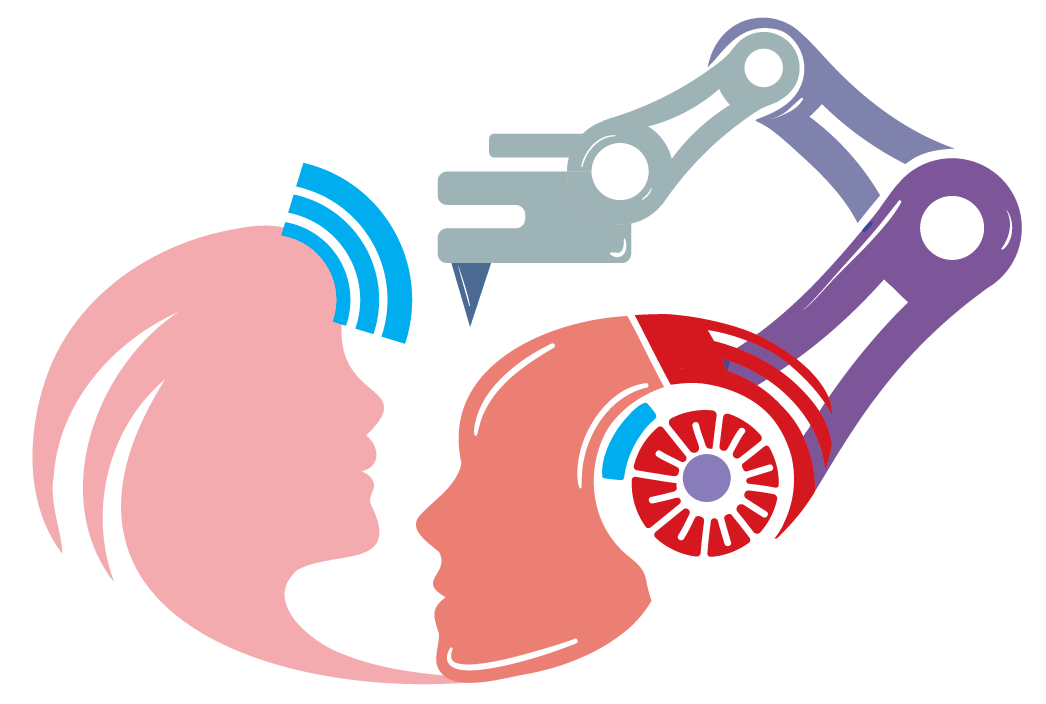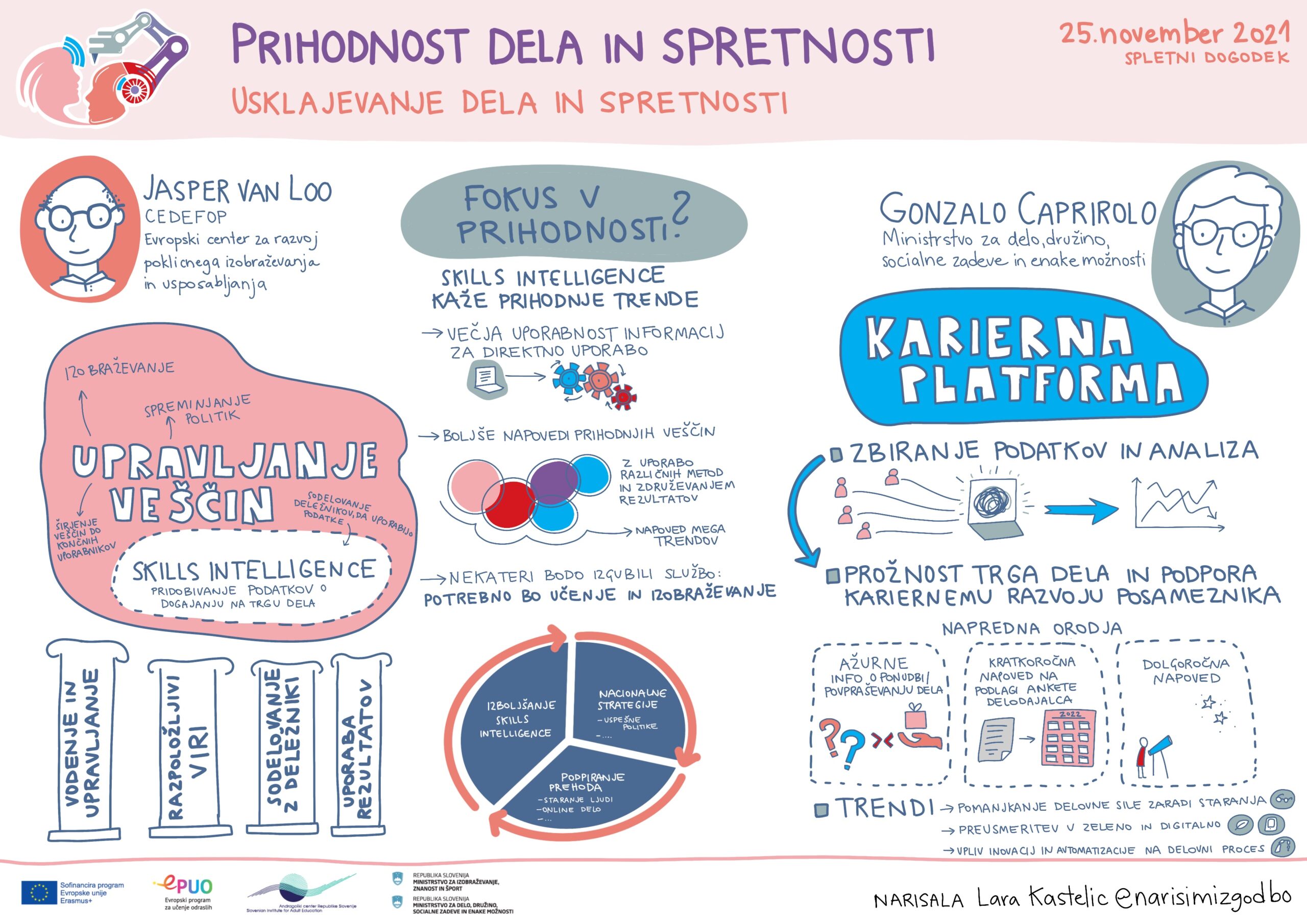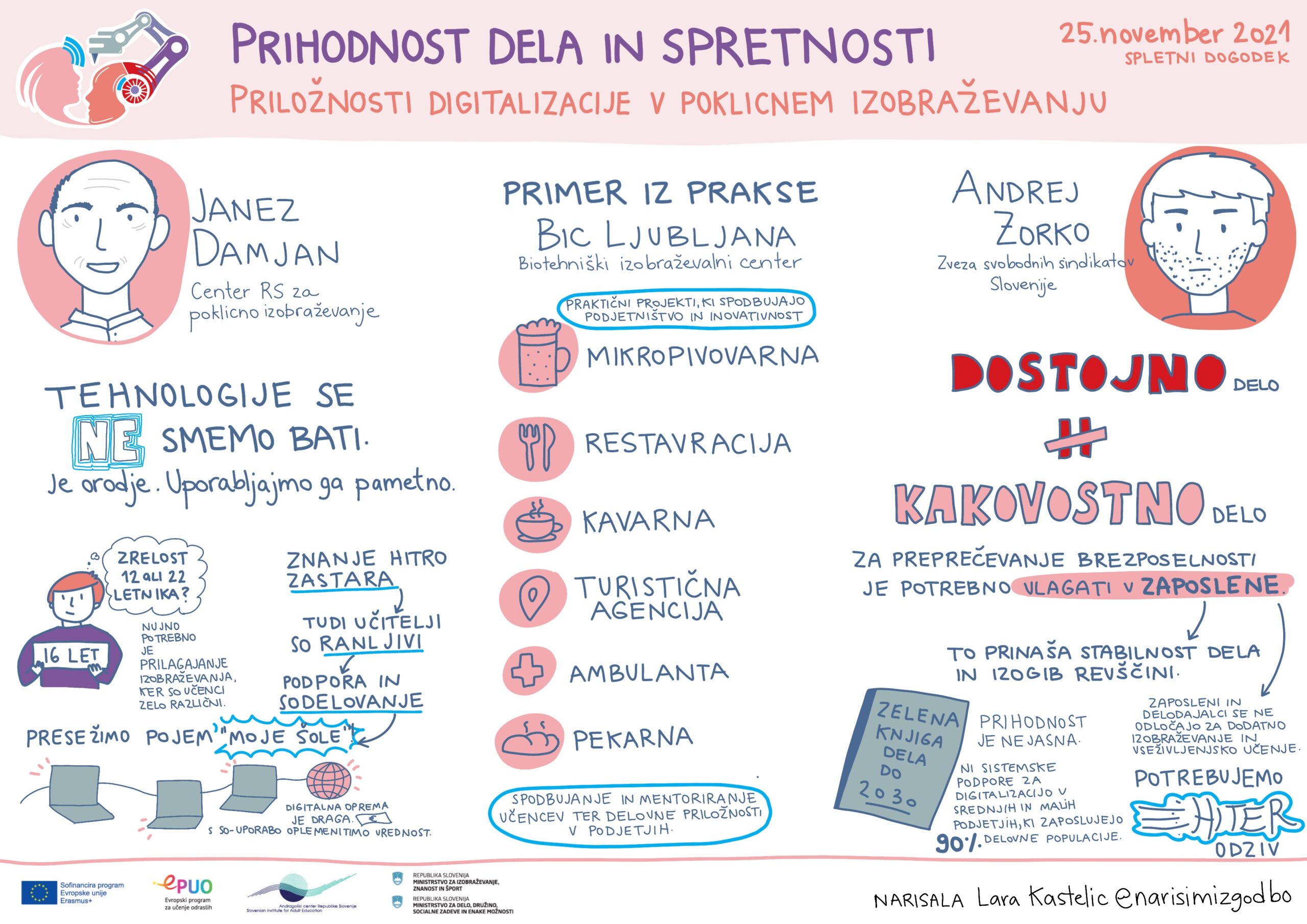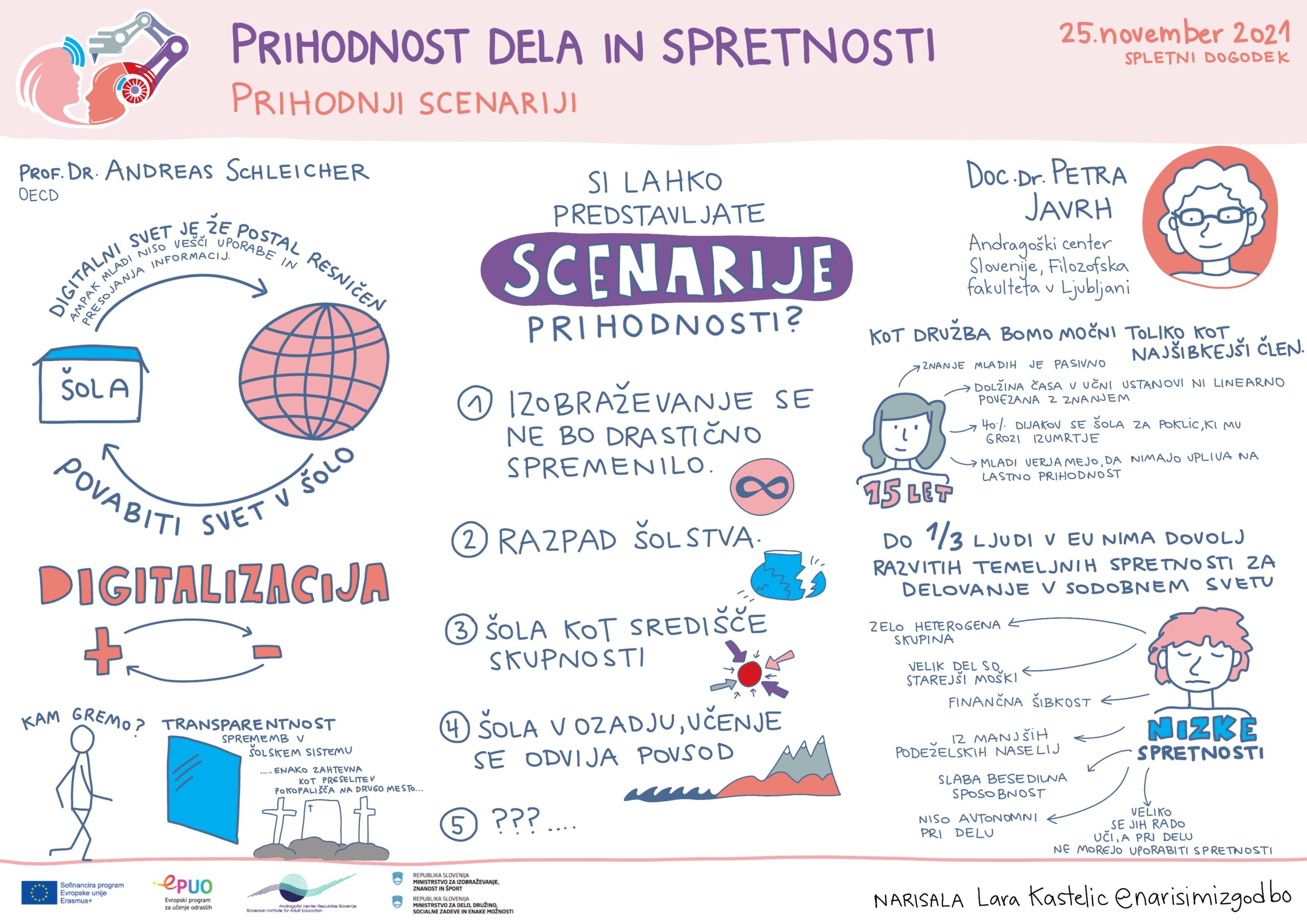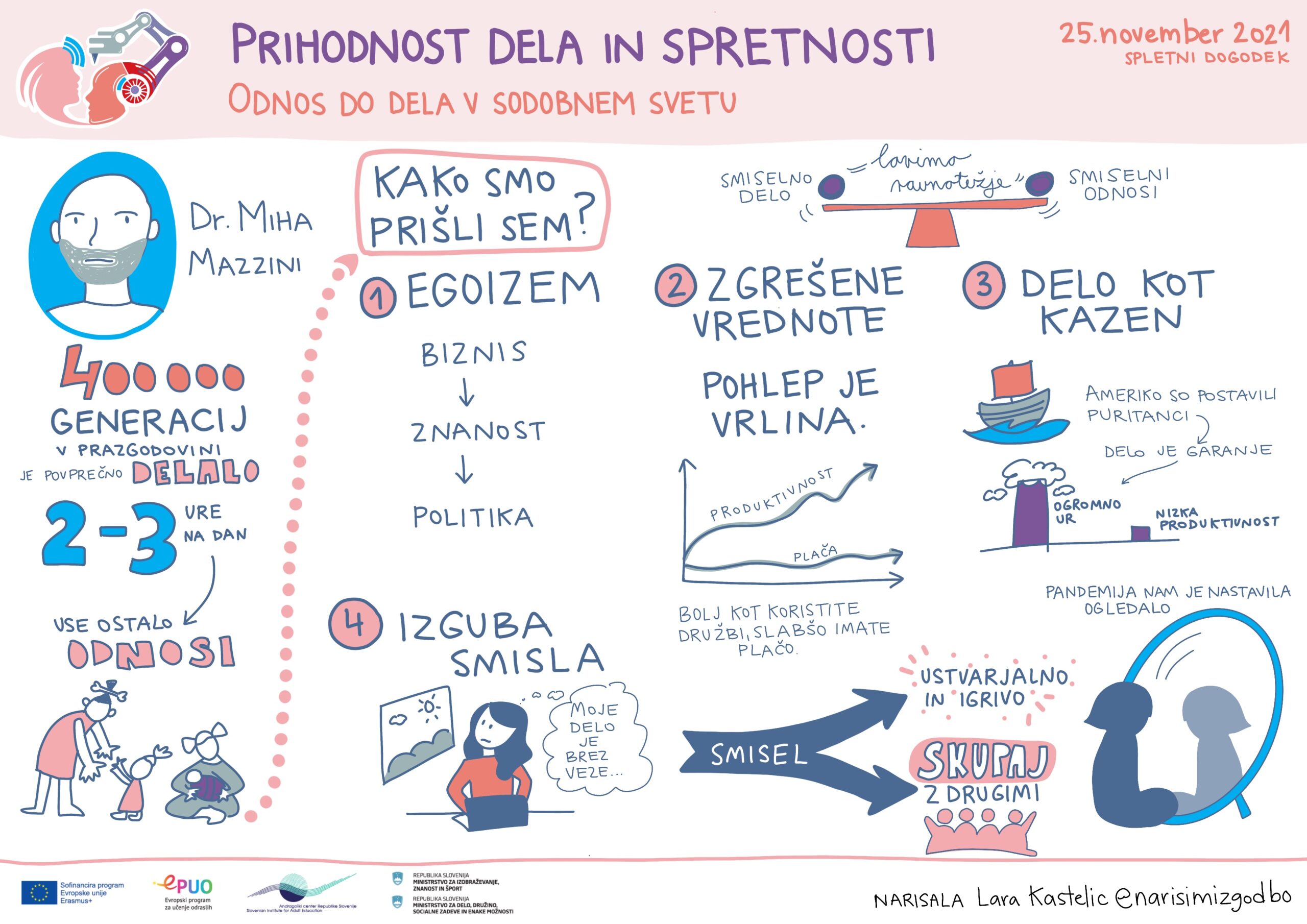
Digitalisation and other forms of technological progress are increasingly affecting our lives and work. Regardless of age and living circumstances, each of us must develop new skills, because otherwise we quickly lag behind the prevailing socio-economic current. At the same time, we need to strengthen permanently relevant and valuable skills. Among these, in the first place, are basic skills and those that concern creativity, teamwork, critical thinking, entrepreneurship, as well as empathy, ethics and morality.
New technologies and consequently a different organisation of work are affecting the changed tasks, responsibilities and ways of working. They lead to the abandonment of some professions and the emergence of others. In addition to the digital transition, we are also affected by demographic challenges and the green transformation of society and the economy, as sustainable approaches to learning and work are needed. Predicting and managing skills are the first conditions for success in ever-changing circumstances.
In an increasingly complex and uncertain world, we need to learn (and act) faster, more effectively. The reproduction of what is already known is obsolete; what is required is (inter)action, project-based learning and continuous (self)questioning to research what new can we achieve with our constantly upgraded knowledge and skills. All education and training system components must also adapt accordingly to ensure high quality and responsible use of new technologies.
We are all on the move, but individuals with relatively low skill levels are all the more at risk. Flexibility, individualised approaches, guidance and evaluation of previously acquired knowledge and awareness of the benefits that learning brings for work and life, in general, are key success factors. Formal, non-formal, informal (experiential) – general and vocational education and learning provide initial knowledge and skills. However, only a holistic and lifelong approach allows us to face the challenges of modern times successfully.
We highlight vocational education and training, which is of great importance in providing the digital and practical skills that the labour market demands. It is also essential in eliminating disparities between existing skills and those for which there is the most demand. Upskilling Pathways – new opportunities for adults is a European strategy that has been paying close attention to this issue since 2016 while also drawing attention to the importance of general, soft skills.
We discussed these topics at the forum on the Future of Work and Skills, organised by the Slovenian Institute for Adult Education (SIAE) on Thursday, 25 November 2021, in an online version (Zoom), from 9 a.m. to 12:15 p.m.
Full video of the event (English translation)
Video
Skills governance – matching skills and jobs in dynamic times (Dr Jasper Van Loo)
Career platform – concepts and work in progress (Gonzalo Carlos Caprirolo Cattoretti, MSc)
Opportunities for digitalisation in vocational education and training (Janez Damjan, MSc)
Case study: Ljubljana Biotechnical Educational Center (BIC Ljubljana)
High-quality and sustainable work (Andrej Zorko)
Learning for the Future – OECD Learning Compass 2030 – excerpt (Prof Dr Andreas Schleicher)
Rethinking scenarios on the future of learning and work (Doc Dr Petra Javrh)
Attitude towards work in the modern world (Dr Miha Mazzini)
Graphic harvest
(Lara Kastelic)
Programme
Part 1: On work and skills
Programme (pdf)
9:00–10:30
Skills governance – matching skills and jobs in dynamic times, Dr Jasper Van Loo, Cedefop (European Center for the Development of Vocational Training)
Career platform – concepts and work in progress, Gonzalo Carlos Caprirolo Cattoretti, MSc, Ministry of Labour, Family, Social Affairs and Equal Opportunities
Opportunities for digitalisation in vocational education and training, Janez Damjan, MSc, Institute of the RS for Vocational Education and Training
Case study: Ljubljana Biotechnical Educational Center (BIC Ljubljana) – educational center of the future
Discussion
10:30–10:45
Break
Part 2: On learning and work
10:45–12:15
High-quality and sustainable work, Andrej Zorko, The Association of Free Trade Unions of Slovenia
Learning for the Future – OECD Learning Compass 2030, Prof Dr Andreas Schleicher, OECD (video produced for the 7th conference of headmasters of educational institutions: Pedagogic leadership for higher quality and efficiency, Brdo pri Kranju, 23–25 August 2021)
Rethinking scenarios on the future of learning and work, Doc Dr Petra Javrh, Slovenian Institute for Adult Education (SIAE), Faculty of Art University of Ljubljana
Attitude towards work in the modern world, Dr Miha Mazzini
Discussion
Moderator: Zvonka Pangerc Pahernik, MSc, SIAE
More information:
- Zvonka Pangerc Pahernik, Slovenian Institute for Adult Education (zvonka.pangerc.pahernik@acs.si)
